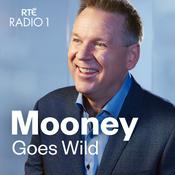1181 episodes
Thomas Zeitzoff, "No Option But Sabotage: The Radical Environmental Movement and the Climate Crisis" (Oxford UP, 2026)
19/2/2026 | 58 mins.An authoritative history of the radical environmental movement in the United States, No Option But Sabotage explores how far activists are willing to go to defend the planet in the face of repression and the escalating climate crisis.
After 9/11, the radical environmental movement was considered the number one domestic terror threat by the U.S. government. But by the end of the decade the movement had largely gone silent. What happened? And given the threat from climate, why haven't more radical tactics re-emerged?
In No Option But Sabotage: The Radical Environmental Movement and the Climate Crisis (Oxford University Press, 2026), Thomas Zeitzoff traces the origins, rise, fall, and potential rise again of the movement. Using in-depth interviews with past and current activists, as well as experts, Zeitzoff covers the main factions and actors. These include: Earth First! and its early advocacy for "monkeywrenching;" the "Unabomber" Ted Kaczynski and his years-long anti-technology bombing campaign; the connections between animal liberation, punk, and the emergence of the Earth Liberation Front and its arson campaign; and more recent climate activists and their use of disruptive tactics. Along with providing a comprehensive overview of the movement and its various sub-movements that emerged over time, Zeitzoff also asks the bigger question-given the scope and threat from climate change why haven't activists escalated their tactics? Property destruction, sabotage, and even arson were once regular features of the movement in the 1990s and early 2000s--will activists use them again, or will they stick to non-violence? Will the threat of increasing state repression scare activists, or radicalize them?
Not just a history of a major extremist movement, this book tells the story of radical environmentalism and highlights how activists are confronting the dual threats of climate change and repression, and asking themselves how far they are willing to go to protect the planet.
Thomas Zeitzoff is a professor in the School of Public Affairs at American University. His research focuses on political violence, social media, and political psychology.
Caleb Zakarin is CEO and Publisher of the New Books Network.
Learn more about your ad choices. Visit megaphone.fm/adchoices
Support our show by becoming a premium member! https://newbooksnetwork.supportingcast.fm/environmental-studiesDavid Obst, "Saving Ourselves from Big Car" (Columbia Business School Publishing, 2025)
17/2/2026 | 1hStreetwise: Saving Ourselves from Big Car (Columbia Business School Publishing, 2025) exposes how “Big Car”―the complex of companies in the automobile, oil, insurance, media, and concrete industries that promote and entrench car dependence―has pursued profit at the expense of the common good. David Obst explores how Big Car gained almost immeasurable influence over our lives, weighing the benefits and the costs of reliance on private automobiles. He details how industry covered up the harms of lead additives, fought against seatbelts, and continues to fund climate-change denialism. Obst considers the future of mobility, surveying how cities―from Taipei to Tempe, Copenhagen to Chicago―are experimenting with forms of transportation that offer alternatives to the dominance of cars. This is a provocative and comprehensive book.
Learn more about your ad choices. Visit megaphone.fm/adchoices
Support our show by becoming a premium member! https://newbooksnetwork.supportingcast.fm/environmental-studies- This episode is brought to you by the BISA Environment and Climate Politics Working Group.
African Climate Futures (Oxford UP, 2025) shows how climate-changed futures are imagined in Africa and by Africans, and how these future visions shape political debates and struggles in the present. Scientific climate scenarios forecast bleak futures, with increased droughts, floods, lethal heatwaves, sea level rises, declining crop yields, and greater exposure to vector-borne diseases. Yet, African climate futures could also encompass energy transitions and socio-economic revolutions, transformed political agency and human subjectivities, and radically reparative more-than-human climate politics.
At the heart of the book is an original and interdisciplinary approach. It studies official climate policy strategies and fictional texts side-by-side, as ecopolitical imaginaries that envision low-carbon, climate-changed futures, and narrate pathways from 'here' to 'there'. It discusses net zero strategies from Ethiopia, The Gambia, Nigeria, South Africa, and Zimbabwe and draws on postcolonial, feminist, and queer theory, arguing that Africanfuturist climate fiction can inspire more radical, reparative, more-than-human ecopolitical imaginaries. These stories can help us to understand the debts we all owe, imagine what reparations might entail, and explore the contours of living convivially alongside more-than-human others in heterotopian, climate-changed futures.
Stories can help explore how we might feel in climate-changed futures and can help us to narrate a path through them. This book uses Africanfuturist climate fiction to inspire new ways of challenging and enriching theoretical debates in global climate change politics, including how we understand the places, temporalities, ecologies, and politics of climate futures. If we want to survive to tell new stories in liveable futures then we need to urgently and radically transform carboniferous capitalism.
Carl Death joined the University of Manchester in August 2013 as a Senior Lecturer in International Political Economy, after four years in the Department of International Politics, Aberystwyth University, and a year in the School of Law and Government, Dublin City University. He has conducted research in South Africa, Tanzania and the USA, and has held visiting researcher positions at The MacMillan Centre for International and Area Studies and the Agrarian Studies Program at Yale University; the Wits Institute for Social and Economic Research (WISER) at the University of the Witwatersrand in Johannesburg; Stellenbosch University; and the Centre for Civil Society (CCS) at the University of KwaZulu-Natal in Durban.
Pauline Heinrichs is a Lecturer in War Studies (Climate and Energy) at King’s College London. Her research focuses climate and energy security. Pauline has worked with and led international teams in conflict and post-conflict countries such as Ukraine and the Baltic States, leading on qualitative methods and strategic narrative analysis. Pauline has also been a climate diplomacy professional working in foreign policy, and an international climate think tank.
Learn more about your ad choices. Visit megaphone.fm/adchoices
Support our show by becoming a premium member! https://newbooksnetwork.supportingcast.fm/environmental-studies Cassandra Shepard, "Settler Colonialism is the Disaster: A Critique of New Orleans After Hurricane Katrina and During the COVID-19 Pandemic" (U Illinois Press, 2026)
15/2/2026 | 49 mins.Settler Colonialism is the Disaster: A Critique of New Orleans After Hurricane Katrina and During the COVID-19 Pandemic (U Illinois Press, 2026) is the new book from Dr. Cassandra Shepard, Assistant Professor in the Department of African American and Diaspora Studies at Xavier University of Louisiana. Published with University of Illinois Press, this encompassing and engrossing book focuses on the crises that have engulfed New Orleans, including the disasters of colonialism, Hurricane Katrina in 2005, and COVID-19, taking the reader through their causes and impacts on not only a broad level but through the everyday and often traumatic experiences of the residents of New Orleans. The analysis moves from the Lower Ninth Ward in New Orleans, to state-level post-disaster reconstruction contracts, to international forms of colonialism, and even encompasses Beyonce. This book, which is also includes poetry and a recommended playlist, is also very relevant to the current global moment.
Shepard analyses the overlapping and intersecting disasters that have affected New Orleans through ideas of disaster capitalism and settler colonialism, demonstrating how Black and Indigenous peoples have been deprived of critical resources. The reconstruction processes following, and during, these crises have often sought to exploit the authentic New Orleans culture and vibrancy to further the consolidation of power, profit, and privilege of white elites, to the detriment of Black and Indigenous peoples. Shepard’s book, Settler Colonialism is the Disaster, takes a multi-scalar view of settler colonialism and investigates how it has not only operated historically in New Orleans, but clearly demonstrates that it is a continual process that still determines reconstruction, relief, and other projects today. Shepard connects the ongoing violence and dispossession inherent in settler colonialism within New Orleans, expressed through structural responses to Hurricane Katrina and COVID-19, to other settler colonial projects around the world, such as in Canada, Israel, New Zealand, and Australia.
Cassandra Shepard’s new book is an exceptional, theoretically and empirically rich book that offers a new critique into ‘best practice’ reconstruction, which demands attention. Settler Colonialism is the Disaster offers an urgent, critical view of the political economy of reconstruction, aid, and government responses; a view which is crucial to take seriously in our world today, plagued as it is by crisis, war, and settler colonialism.
Elliot Dolan-Evans is a sessional lecturer in law at Monash University and RMIT. His research investigates the political economy of global capitalism, forms of international governance, and questions of war and peace. His first book, Making War Safe for Capitalism: The World Bank, IMF and the Conflict in Ukraine, is now out with Bristol University Press.
Learn more about your ad choices. Visit megaphone.fm/adchoices
Support our show by becoming a premium member! https://newbooksnetwork.supportingcast.fm/environmental-studiesLys Kulamadayil, "Pathology of Plenty: Natural Resources in International Law" (Bloomsbury 2025)
13/2/2026 | 1h 5 mins.In Pathology of Plenty: Natural Resources in International Law (Bloomsbury 2025), Lys Kulamadayil offers a crucial examination of how international law shapes the exploitation of natural resources in post-colonial States. Kulamadayil reveals how international legal rules can be constitutive, punitive, remedial in creating the paradox of plenty in resource-rich States.
The book revisits the making of foundational principles like sovereignty over natural resources and economic self-determination as applied during decolonisation; explores how humanitarian frameworks have justified extraction of public natural resources; and traces the proliferation of international treaties that protect foreign property rights. The book also zooms in on legal paradigms ranging from contract law to anti-corruption, human rights, and criminal law, arguing that these frameworks often work together to create the pathology of plenty.
Through this interrogation, the book points to proposals to escape siloed ways of thinking about natural resources and embrace an intersectoral and anti-carceral thinking instead.
Lys Kulamadayil is a Swiss National Science Foundation Ambizione Fellow at the Graduate Institute of International and Development Studies in Geneva and the Principal Investigator of the project Law by Colour Code: Locating Race and Racism in International Law.
Raghavi Viswanath is a postdoctoral researcher and teaching fellow at SOAS, University of London. Her research, supported by the Leverhulme Trust, examines how pastoralists claim grazing rights under India’s Forest Rights Act 2006 and how the everyday processes of staking such claims has been impacted by the authoritarian turn in India. LinkedIn. Email:[email protected]
Learn more about your ad choices. Visit megaphone.fm/adchoices
Support our show by becoming a premium member! https://newbooksnetwork.supportingcast.fm/environmental-studies
More Science podcasts
Trending Science podcasts
About New Books in Environmental Studies
This podcast is a channel on the New Books Network. The New Books Network is an academic audio library dedicated to public education. In each episode you will hear scholars discuss their recently published research with another expert in their field.
Discover our 150+ channels and browse our 28,000+ episodes on our website: newbooksnetwork.com
Subscribe to our free weekly Substack newsletter to get informative, engaging content straight to your inbox: https://newbooksnetwork.substack.com/
Follow us on Instagram and Bluesky to learn about more our latest interviews: @newbooksnetwork
Support our show by becoming a premium member! https://newbooksnetwork.supportingcast.fm/environmental-studies
Podcast websiteListen to New Books in Environmental Studies, Mooney Goes Wild and many other podcasts from around the world with the radio.net app
Get the free radio.net app
- Stations and podcasts to bookmark
- Stream via Wi-Fi or Bluetooth
- Supports Carplay & Android Auto
- Many other app features
Get the free radio.net app
- Stations and podcasts to bookmark
- Stream via Wi-Fi or Bluetooth
- Supports Carplay & Android Auto
- Many other app features

New Books in Environmental Studies
Scan code,
download the app,
start listening.
download the app,
start listening.







































